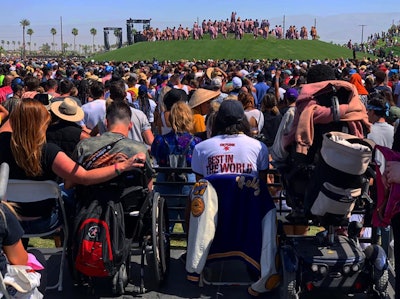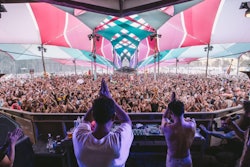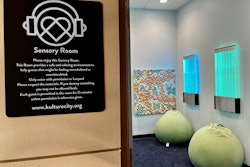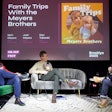
Spring typically marks the start of music festival season. But of course, once again, due to the COVID-19 pandemic, things are rolling out a bit differently this year. The Coachella Music and Arts Festival, which was slated for April 9-11 and 16-18, has been canceled. Stagecoach Country Music Festival was axed. The Bonnaroo Music & Arts Festival, which typically takes place in June, is scheduled to run Sept. 2-5.
With a lack of big-name fests on the calendar, some new, more intimate experiences are popping up, such as Inclusion Dining & Jams. The dinner and show experience, with performer Ryan Montbleau, is set to take place April 11 at the MusikFest Cafe in Bethlehem, Pa.
Presented by Accessible Festivals and ArtsQuest, a local nonprofit organization providing access to art, culture and educational programs, the event is designed to be, as the name would suggest, all inclusive—from the use of sensory-friendly music to a menu that accommodates dietary needs.
Since some folks may process sensory information differently, an environment like this takes into account any elements such as music volume and crowd size that can be overwhelming and offers visual, auditory, cognitive, physical and sensory accommodations.
Amy Pinder, executive director of Accessible Festivals, explains that the Inclusion Dining & Jams show will be “sensory-friendly, meaning the music will be played at a slightly lower volume” and “the lights will be mindfully set to accommodate someone with sensory-processing challenges.” Plus, American Sign Language interpreters will be on-site, and captions will appear on the video screens. Attendees will also be able to view the captions on their mobile devices via a QR code.
In addition, Accessible Festivals has consulted with MindsEye, a nonprofit organization that translates visual content into audio experiences for people with visual impairments, to incorporate audio descriptions throughout the event. “We're really excited to try that and to build that right into the show,” Pinder says.
“Often an audio describer is someone who discreetly tells someone with a visual impairment what's going on using a headset. But we're going to build this kind of language right into the hosting, right into the show itself, so that it seems natural and benefits everyone.” She explains that MindsEye does audio describing for the music and arts industry, but “they've never audio-described for a live concert with music that has lyrics, so we're really excited to try this for the first time.”
Founded in 2014 by Austin Whitney, who was paralyzed from the waist down as a result of a car accident, Accessible Festivals provides services, consultation and training to businesses, including working with large-scale festivals such as Coachella to make them more accessible. Whitney eventually joined forces with Amy Pinder and Leah Barron, the founders of Inclusion Festival, a sensory-friendly music and wellness festival, to expand the organization.
Pinder, who has a background in special education and speech therapy, says that the organization has currently “pivoted from working with these larger festivals to working with smaller grassroots festivals and partnering with other nonprofit organizations to make their festivals and music programs more accessible. ... We're focusing on smaller festivals that don't have the resources and don't have the liability to drive them to do the same, but really want to do the right thing.”
She encourages event planners to think about accessibility from the very initial stages of planning. “It's really hard to adjust and tack on things to make an event more accessible once the planning has been in place and moving forward. But if you think about it from the very beginning stages, there are a lot of ways to build in accessibility features and incorporate them that are actually not that difficult,” she said.
In addition to incorporating standard accessibility features within an event, Pinder also stressed the importance of “the attitude of the staff and the knowledge of the staff. At a very basic level, providing staff with inclusion and diversity training that includes information about people with disabilities is hugely impactful because having that awareness and building some empathy and understanding does so much to change the atmosphere and the culture at an event—whether it's in person or online.”
As for the upcoming Inclusion Dining & Jams event, Pinder expects about 150 people in attendance, all practicing social distancing. Masks will be required in all indoor and outdoor areas except when eating and drinking while seated, and temperature checks will be administered prior to entry. Those outside of the Bethlehem area can join via a donation-based livestream, and the organizers also plan to release a recording of the event with accessibility features. The donations from the livestream will support Accessible Festivals’ mission, as well as grants to other nonprofits and grassroots festivals interested in making their festivals more accessible.



















